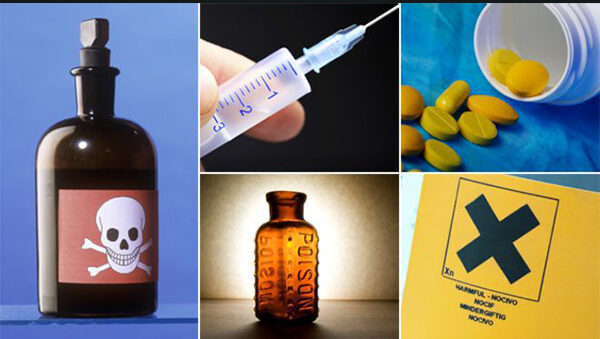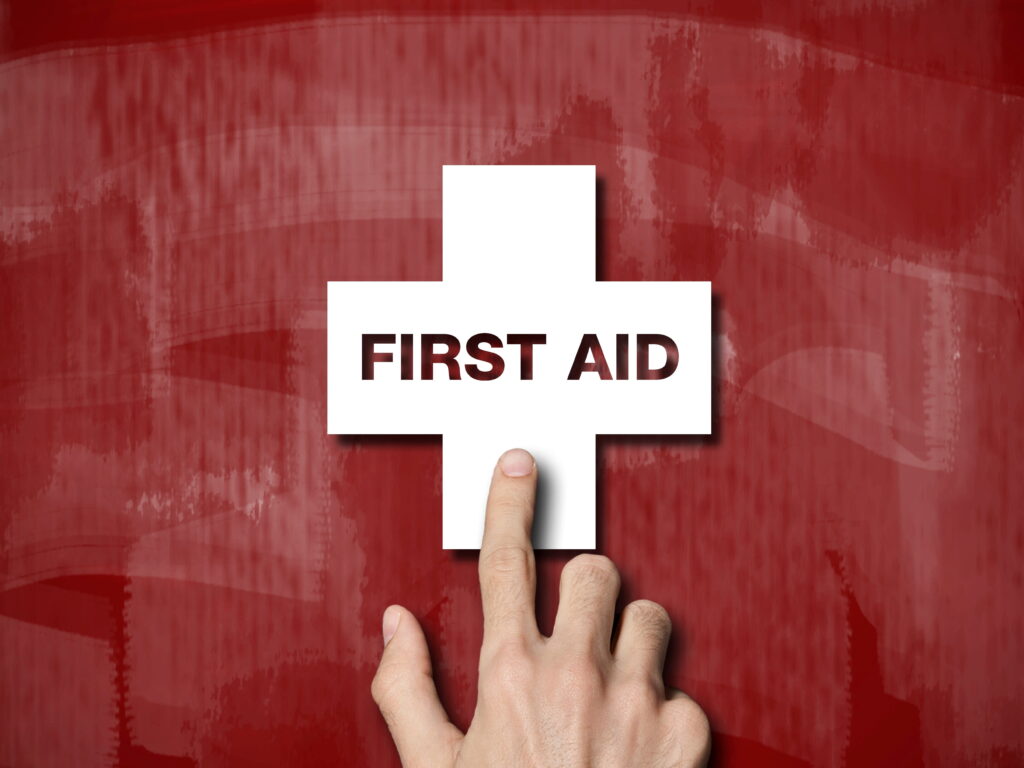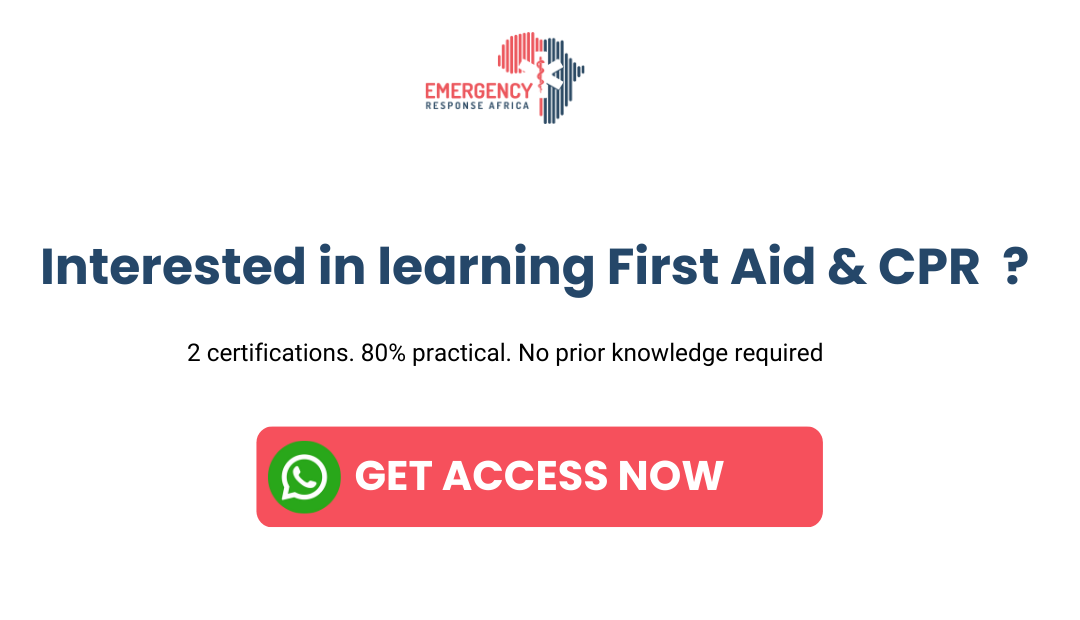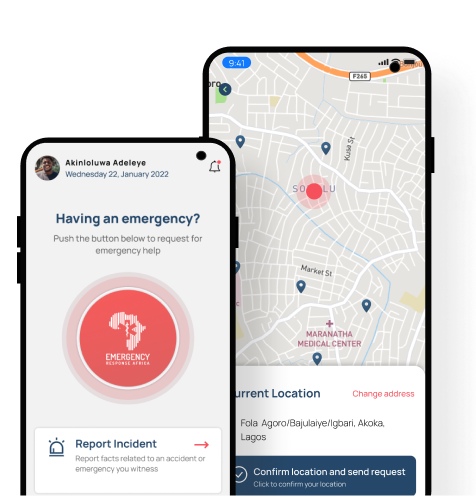Have you ever come across someone who was poisoned or had an allergic reaction? If yes, how did you respond? Were you able to identify the situation as poisoning or an allergic reaction? This guide will help you learn about the signs of these emergencies and provide simple steps you can take to help someone in need.
First Aid for Poisoning and Allergic Reactions
When someone is exposed to a poisonous substance or has a severe allergic reaction, it can quickly turn into a life-threatening emergency. That is why Emergency Response Africa (ERA) is dedicated to educating people on how to respond in these situations, providing life-saving knowledge and skills.
Every day, people face unexpected situations where they or someone around them might be exposed to poisoning or experience a severe allergic reaction. These emergencies can happen anywhere—at home, in the workplace, or even in public spaces and many people lack the knowledge about how to recognize these signs and what immediate steps to take.
Knowing the basics of first aid for poisoning and allergic reactions can save lives and prevent further complications.

What is Poisoning?
Poisoning occurs when a harmful substance is ingested, inhaled, injected, or absorbed through the skin. These substances, known as poisons, can include chemicals, medications, plants, or even certain foods.
The effects of poisoning can range from mild symptoms, like stomach upset, to severe reactions, such as breathing difficulties or unconsciousness.
RELATED SERVICES:
Common Signs and Symptom of Poisoning
Recognizing the signs of poisoning early can be crucial. Here are some common signs to look out for:
- Nausea and Vomiting: This is often one of the first signs that something is wrong. It could be the body’s way of trying to expel the poison.
- Abdominal Pain: Sharp or cramping pain in the stomach area can indicate that a person has ingested something toxic.
- Breathing Problems: Difficulty breathing, wheezing, or shallow breaths can occur if the poison affects the lungs or airways.
- Confusion or Drowsiness: Changes in alertness, confusion, or unusual drowsiness might suggest the poison is affecting the brain.
- Skin Reactions: Rashes, redness, or burns can appear if the poison was absorbed through the skin.
- Seizures: Some poisons can cause seizures, which are sudden, uncontrollable muscle spasms and convulsions.
- Unconsciousness: If a person becomes unresponsive and cannot be awakened, this is a serious sign that requires immediate medical attention.
Quick Response Tips for Poisoning
If you suspect someone has been poisoned, quick action is essential. Here’s what you should do:
- Call for Help Immediately: Dial emergency services or a poison control center. They can provide specific advice based on the situation.
- Remove the Person from Danger: If the poison is in the air (like fumes or gases), move the person to fresh air. If it’s on their skin or clothes, remove contaminated clothing and rinse the skin with water.
- Check for Breathing and Responsiveness: Ensure the person is breathing and conscious. If they are not, begin CPR if you are trained to do so.
- Do Not Induce Vomiting: Unless instructed by a medical professional, do not make the person vomit. This could cause more harm.
- Provide Information: When you call for help, be ready to provide details about the poison, the amount taken, and the time of exposure.
What are Allergic Reactions?

An allergic reaction happens when the immune system overreacts to a substance it mistakenly identifies as harmful.
This substance, known as an allergen, can be anything from food and pollen to insect stings and certain medications. Allergic reactions can range from mild to life-threatening.
Common Allergens
- Foods: Nuts, shellfish, eggs, and dairy are common triggers.
- Insect Stings: Bee, wasp, or hornet stings can cause severe allergic reactions in some people.
- Medications: Penicillin and other antibiotics are known to trigger allergies.
- Pollen and Dust: Airborne allergens like pollen and dust mites can cause reactions.
- Animal Dander: Proteins found in the skin, urine, and saliva of furry pets can cause allergic reactions.
READ MORE
Common Signs and Symptoms of Allergic Reactions
Allergic reactions can vary from mild to life-threatening. It’s important to recognize the signs early:
- Mild Reactions: These might include sneezing, a runny or stuffy nose, itchy or watery eyes, or a mild rash.
- Moderate Reactions: Symptoms could include more severe itching, hives (raised, red welts on the skin), swelling, or difficulty breathing.
- Severe Reactions (Anaphylaxis): This is a life-threatening condition that requires immediate medical attention. Signs include:
- Swelling of the Face and Throat: This can make it difficult to breathe or swallow.
- Trouble Breathing: Wheezing or shortness of breath indicates that the airways might be narrowing.
- Rapid Pulse: A fast heartbeat can be a sign of distress.
- Dizziness or Fainting: The person might feel lightheaded or lose consciousness.
- Shock: This includes a drop in blood pressure, which can be deadly if not treated immediately.
Quick Response Tips for Allergic Reactions
Knowing how to respond to an allergic reaction can make a big difference. Here’s what to do:
- Identify the Allergen: If possible, remove or avoid the allergen causing the reaction. For example, move away from the area where an insect sting occurred or stop eating the food that triggered the reaction.
- Use an Epinephrine Auto-Injector: If the person has a known severe allergy and has an epinephrine auto-injector (like an EpiPen), use it immediately. Epinephrine is the first line of defense in severe allergic reactions.
- Call Emergency Services: Even if the person feels better after using an epinephrine auto-injector, they still need to go to the hospital. Symptoms can return, and further treatment may be necessary.
- Monitor Breathing and Circulation: Keep an eye on the person’s breathing and pulse. If they stop breathing or lose consciousness, start CPR if you are trained to do so.
- Stay Calm and Provide Reassurance: Allergic reactions can be scary especially when you’ve not seen one suffered from it before. Keeping the person calm can help prevent their symptoms from worsening.
Prevention Tips for Poisoning and Allergic Reactions
While knowing first aid is crucial, prevention is always better than cure. Here are some tips to prevent poisoning and allergic reactions:
How to Prevent Poisoning
- Store Chemicals Safely: Keep all chemicals, cleaning supplies, and medications out of reach of children and pets. Use childproof locks and safety caps.
- Read Labels Carefully: Always read and follow the instructions on product labels. Never mix different chemicals, as this can create toxic fumes.
- Dispose of Medicines Properly: Do not leave expired or unused medications lying around. Dispose of them safely, following local guidelines.
- Avoid Unknown Plants and Berries: Teach children not to eat unknown plants or berries, as some can be toxic.
RELATED SERVICES:
How to Prevent Allergic Reactions
- Know Your Allergens: Be aware of any known allergies you or your family members have. Avoid these allergens whenever possible.
- Carry Allergy Medications: If you have severe allergies, always carry an epinephrine auto-injector and any other prescribed medications.
- Inform Others About Your Allergies: Let friends, family, and coworkers know about your allergies so they can help in an emergency.
- Read Food Labels: If you have food allergies, read labels carefully to avoid accidental exposure.
Conclusion
Emergencies like poisoning and allergic reactions can be frightening, but being prepared can make a big difference.
By recognizing the signs early and knowing how to respond quickly, you can help protect yourself and others.
Always keep emergency numbers handy, know the basics of first aid, and educate others about these important skills. Remember, quick and calm action can save lives.




